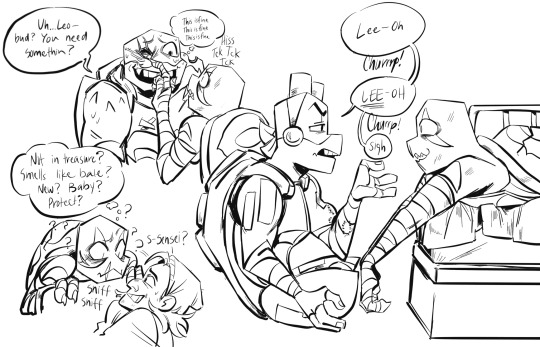#so much vocab
Note
How can one express disapproval colloquially? Or what are the equivalents for "Not cool"?
I think the closest all-purpose expression you're looking for is no vale which is sometimes no se vale
It literally means "that's not valid" or "that's not accepted", but colloquially you use it like "that's not fair" or "that's not okay"; it's especially common in games or for kids when someone does something that's like cheating or they're suddenly winning etc and it's like "that's not fair!" - that's no (se) vale
There are some regionalisms for "boring" like I know Chile says qué fome but most of Spanish recognizes aburrido/a "boring" or qué aburrido/a "how boring"
I don't know if it's common in other places but I believe Spain uses the word pesado/a which is literally "heavy" to kind of be a mix of "stick in the mud" and "annoying" - it's just short of calling someone an ass, but it can also mean that something is uncool or ruining the vibe
The other expressions I can think of are kind of like shock/disapproval like no puedo creerlo "I can't believe it", or no me digas which can either be "don't tell me" or "you don't say" - sometimes people will say some variation of lo que faltó or like lo que me hizo falta which is something like "just what I needed" but it's literally "(exactly) what was missing", and that expression is like disapproval + a feeling of frustration/exhaustion just like English [and of course you can change the indirect object like lo que nos faltaba "just what we needed" / lo que nos hizo falta "just what we needed"]
...
Aside from that it kind of depends on the exact disapproval but there are many standard ways to express some things
The expressions I can think of are more standard throughout all of Spanish, but decepcionante is "disappointing" or ¡qué decepcionante! "how disappointing" or ¡qué decepción! "what a disappointment"
The verb is decepcionar "to disappoint" so it could be like me decepcionas "you disappoint me"
...
Standard Spanish also uses aguafiestas which is gender neutral but it's like "party-pooper", literally aguar la fiesta is "to throw water on the party" but is also "to spoil someone's fun"... so the noun aguafiestas is like "spoilsport"; in school we were taught to think of it as "raining on someone's parade" for the image of water
Other expressions are like mentira which is literally "lie" but it could be "you are lying" or "that is a lie" etc. calling somone a liar is typically mentiroso/a
Another commonplace expression is no tener gracia "to not be funny" usually said of situations so no tiene nada de gracia "that's not funny at all" or no veo la gracia (en algo) "I don't see what's funny (about something)"
More extreme or dramatic ones are like traidor/traidora "traitor" or using traicionar "to betray"
41 notes
·
View notes
Text
trying to recap and go back to actively learning japanese again but the last time I was actively learning it was almost 3 years ago and I’ve forgotten 99% of it and the only full sentence I can say with conviction is like “watashi wa baka desu”
#*ramblings#ive forgotten SO MUCH grammar#SO MUCH vocab#hitting myself seriously wHY DID I STOP FOR SO LONG#to think there was a time i could actually hold pROPER CONVERSATIONS in japanese ;u;#all the other languages i'd picked up over the years: *lurks behind corner*
11 notes
·
View notes
Text

More fluff! (+ just an itty bitty teeny smidge of PTSD for Raph)
Prev || Hueso
I’ve googled so many turtle facts since joining this fandom lol. Never knew a group of turtles was called a bale lol.
Casey wasn’t in Leo’s picture so he’s a stranger, but come on even feral, Leo would hop on protecting this kid the moment he saw him.
Tomorrow is gonna be me trying to catch up on my inbox and working on Sep!au pages, so this’ll be the last of feral Leo for a bit!
#rottmnt#rottmnt fanart#rise leo#rise tmnt#rise of the tmnt movie#my art#feral leo au#rise donnie#rise raph#rise casey jones#leonardo hamato#raphael hamato#donatello hamato#Casey jones#rise of the tmnt movie spoilers#I like putting Casey in various hats/scarves#I feel like he’d feel naked without his mask on his head#Raph is trying so hard not to panic#Donnie is trying to see how much of Leo’s vocab is still there#answer is not much#feral Leo au main
8K notes
·
View notes
Text
so i was thinking abt the old brokeback mountain forum threads i had stumbled upon last yr and i remember coming across a very lengthy one where people were debating the nature of ennis and jack's relationship during their days on brokeback mountain. specifically, people were debating about whether or not ennis and jack kissed at all during those first few months of friendship and fucking.
i know what y'all may be thinking: but nickie, didn't they literally kiss, like, super passionate style during the unfamous second-night-in-the-tent (or SNIT, as the BetterMost forum users dubbed it) scene?
but see, the thing is that in the original short story Annie Proulx never mentioned them kissing during their time on the mountain. In fact, the first (and only) time kissing is mentioned is during their reunion. In an interview, Ang Lee had said that the whole SNIT scene was written into the film to help audiences better understand the budding passion and love between Ennis and Jack. Otherwise, they felt viewers wouldn't quite get the depth of feelings that they had for each other, and thought they would've been lost as to why it hurt them both so bad to be separated earlier than they'd anticipated.
of course i love the idea that they eased into intimacy so early on in their relationship that they made out a ton while herding on the mountains, but imo, it's also kind of interesting to think about the reunion scene being their first kiss.
in her Story to Screenplay book essay, Annie Proulx said that ranchers would often hire two guys to tend a flock together so that they could 'poke each other' on the lonesome days in the mountains. In some ways, Ennis and Jack fucking was a normal and anticipated part of the job—a 'one-shot thing' that would occur simply due to circumstance. She said what was unusual about Ennis and Jack's case is that the two had fallen into a deep, once-in-a-lifetime kind of love during their time together, thus negating the whole 'one-shot' thing Ennis had declared it to be.
with that in mind, i can see why so many people believed that they never kissed during their initial months of relationship building. They both could have justified it by thinking that as long as they didn't kiss, their tryst didn't mean anything special, nor would it make them queer for going at it like rabbits. Then they both go through the turmoil of losing each other, not knowing why it was they felt so bad about going their separate ways, and go through four long years of silence before "the first sign of life" appears in the form of a postcard.
Jack pulls up in Ennis' driveway, and Ennis is so overcome with joy and desire that first thing his (alcohol-muddled) mind thinks to do is kiss the living daylights out of Jack, and in that moment—as those old forum users had put it—that was basically the first time either of them were able to acknowledge to themselves that the summer on the mountain in '63 meant a whole lot more to them than it should have.
i dunno. i think it's a really interesting subject to think about, one that gets broached in fics very rarely. would like to hear your all's thoughts, if any!
#brokeback mountain#still brokeback posting#also i KNOW this is my art acc but unfortunately my main is like hidden? so none of my posts will show up in tags :(#anyways regardless of if they did or didnt kiss beforehand im a big fan of the idea that after their big reunion kiss their intimacy#deepened considerably to the point where like. the motel scene wasnt just them fucking but it was their first time making love#like did they make out during the mountain months? maybe. but did they ever fuck facing each other? imo probably not. not until 1967#cause again its like the first time they realized just what they had meant to each other and how much they had missed each other#maybe they still couldnt register it as love because they didnt want to and couldnt take that big of a step as to name it. or maybe they#didnt think that they were capable of feeling love. or maybe they just didnt have the vocab to be able to define those feelings as love#in the first place.#but they at least knew that like. they were inexplicably drawn to each other in a way that they weren't to their wives
236 notes
·
View notes
Text

Everything’s a spectrum so I’m doing a chart to try and understand my aromanticism 😌
#under the hounds category so far was hand holding in public#and sharing a bedroom in a goodnight dear way#I will figure this out!#now’s the time to strike while my brain is malleable from no sleep#nowhere to hide now thoughts!!!#besides the inherent fogginess of a spectrum#it’s hard to understand how many things I disliked bc I was cast as a lady in them#but also there’s an element of cringing away from feeling owned and subsumed#(vocab word of the day)#gets me feeling like the asshole bad boy in a romantic comedy who doesn’t like to be trapped/put labels on things#but not for everything!#which is the tricky part#🙄 I have so much love but there are also the hounds#aromantic#onion’s nightttime thoughts
30 notes
·
View notes
Text

falloutboyforum.com (fan website), 2007
210 notes
·
View notes
Text
Here's a translation of the time Taichi tried to trade sushi to Desperado in exchange for photos of Desperado in panties.
The backstory: This all happened during May of 2020, while NJPW shows were shut down. Taichi did a livestream with Tam, which he only convinced her to do by promising to treat her to sushi.

The conversation starts with Taichi saying that in the video, there's a moment where you can see Tam's panties. (Also he censors the word "panties")

Despe:
What’s the timestamp?

Taichi:
Don’t just skip to that part!
If you want to know the timestamp then pay me.

Despe:
I have zero interest in the rest of this video!
Why should I have to watch a long video of you flirting with a girl!
And buy me sushi too!

Taichi:
If you want sushi too, then show me your p*nties too!
If you send me a magnificent pan*y photo, I’ll consider it

Despe:
A panty photo!?
Aren’t you being generous today!
Are you sure you didn’t mean to say an assh*le photo!?
OHHHKAY!
What’re we waiting for, let’s do this!

Taichi:
*sshole photos huh… I’ve seen too many of those, I’m completely bored of them.
Hey, you said you’ll do it right? Don’t agree to this lightly okay?
Will you do it?
Will you really do it?
Once you’ve said you’ll do this, you can’t go back on it. You understand?
So say it.
Will you show me a magnificent panty photo, the likes of which I’ve never seen before?
Well then, I can’t wait!

Despe:
I’ll take the photo tomorrow afternoon!
Prepare the sushi!

Tam (who they have been @ ing this entire time):
Please stop having this vulgar conversation in my mentions , ,

Taichi:
wtf is vulgar about it
Anyway you’re the one who started this by flashing your panti*s on the livestream!
So go buy Pe some sushi

Despe:
If I'm getting treated to sushi I don't care who's buying
but
who are you talking to?
-
Ohh sorry, I didn’t see your name there!
Panty-flashing girl

Tam:
Please don’t call me panty-flashing girl 😡
It’s Tam.
And why do I have to treat you to anything? I haven’t even eaten mine yet!
I was in line before you, Pe-san!
_
The next day:

Despe:
Why is a simple panty photo
And a selfie no less
So incredibly stressful to take…
Hey you in the next apartment, don’t look at me!
You may not know this but my panties have value (sushi)!
Do not report me! DO NOT!
#njpw#el desperado#taichi#suzuki gun#suzuki gun ichiban#my translation#I know I said I'd post some Hiromu and Desperado twitter translations but have this instead#This has been sitting in my drafts forever so I'm just gonna post it#Reading Taichi's twitter account over the years sure has uh taught me some 'interesting' vocab lol...#I miss Suzuki Gun so much
36 notes
·
View notes
Text
I'm not much of talkative and rarely typing words but I really really appreciate the compliments you guys give me every time 🌹
#often wonder about my own drawings and think I'm not doing enough#but every time see the tags or comments give me a lot supports!!#argharaarggggr want to type somethin more but my vocab and grammmar too bad I cant kjsajkdasdkj#all i want to say is#thank you so much for liking my arts!#really!
81 notes
·
View notes
Text
i find it so endearing whenever hookfang teases snotlout by laughing at jokes (even if he doesn't understand) or huffing out hot air at him or knocking his helmet with his tail or giving him a sly smile or rolling his eyes it's like their understood way of showing affection
#snotfang is like my favorite dragon/rider relationship after hicctooth#they're just so much fun ??#and have their own way of showing each other that they care#every single time snotlout's like 'HOOKFANG!'#i can hear it in my head akjhsdkjahsdkj#my sweet glorbs....#rtte#jackshiccup text#snotlout#hookfang#me everytime im talking abt snotfang: wow they’re so endearing#sorry my vocab is limited
43 notes
·
View notes
Note
what are some of the most specific verbs you can think of
I realized halfway through that you were talking about REALLY specific verbs and by then it was too late.
So most of these are going to be verbs that you can actually use, just often in really specific situations. Many have other meanings today rather than what they actually meant at the time, but that's just how language is
mantear = to toss someone/something in a blanket (usually in celebration)
agonizar = to die slowly, to be dying
santiguarse = to make the sign of the cross
campeonar = to win a championship
enmadrar(se) = to become very close/attached to one's mother
afrancesar = to become like the French, to take on French mannerisms and culture, to act French
zarpar = to set sail
izar = to hoist, to raise a flag, to raise up (via ropes usually)
aguar = to water down, to add water to
acorazar = to armor up [lit. it meant "to put on a breastplate", but it has come to mean "to cover in armor" or "to add plating" similar to the verb blindar]
enramar = to cover in branches / to put in the branches
degollar = to slit someone's throat
añejar = to age [often said of wine or cheese] / to make something old
elaborar = to brew [lit. "to elaborate" or "to work on", it comes across as "to brew" for alcohol or when you're making soups or stews etc or just anything that takes a long time to get right; it kind of more literally means "to work on over a long period of time", that kind of "elaborate", but it can also mean "to elaborate" as in "to add more details"]
defenestrar = to dismiss / to throw someone out of the window
asomar(se) = to start to appear, to peek out, to lean out
[it literally means "to show up upon/above", but it can be "(for a storm) to brew", or "to lean out of a window"... it also shows up in the expression hablando del rey de Roma (y por la puerta se asoma) which is "speak of the devil (and he shall appear)", but literally "speaking of the king of Rome and he leans in the doorway"]
embarrar = to cover in mud / to muddy / "to sling mud", "to play dirty"
enlodar = to cover in mud
encanecer = to get gray hair, "to go gray"
ahorquillar = to make something forked / to make something look like a fork
velar = to stay awake / to stand vigil
[it also means "to put on a veil", but velar as "to stay awake" is literally just no dormir "to not sleep", so it can be "to stay up all night"; the idea is related to "vigil" as in "the people who stay awake to keep watch", so it can be understood as to defend or to watch over someone especially at night]
arborizar = to forest, to plant trees
dactilografiar = to type [an old word; it literally means "to write with one's fingers", today it's usually teclar or tipear or just escribir but this especially was when people used typewriters]
emboscar = to ambush [lit. it means "to put in the woods" or "to (hide) in the woods"]
soslayar = to lay something on its side / to bypass
rociar = to spray, to sprinkle [lit. "for it to be dewy" or "for there to be dew"]
compincharse = to conspire [lit. "to become accomplices", "to accomplice oneself"]
pavonear(se) = to peacock, to parade around [lit. "to peacock", where it's related to el pavo real "peacock"; sometimes it's "to strut" and is compared to the walk of a turkey or peacock]
cabalgar = to go riding (on horseback)
encabalgar = to enjamb [in poetry], to use an enjambment / to rest upon
desengañar(se) = "to come to one's senses", to become disabused of a notion [lit. "to un-fool oneself"] / to become disappointed (by the true reality of a situation, usually)
morar = to dwell
ensimismar(se) = to become withdrawn, "to go into one's own little world"
ladrar = for a dog to bark, to bark
mugir = for a cow to moo, to moo
maullar = for a cat to meow, to meow
empalagar = to cloy, to be sickly sweet / "to lay it on thick", "to be overly kind/sweet"
engatusar = to trick (with flattery)
empanar = to bread, to coat in breadcrumbs
cecear = "to lisp" [it's related to the pronunciation of C, Z, and S; where el ceceo is excessively lisping for some people, but regionally that's an accent usually in parts of Spain]
ahijar = to adopt (a child), to care for a child as if they were your own
prohijar = to adopt (a child)
amadrinar = to be a godmother, to sponsor a child (as a woman)
amadrinar(se) = to become a bridesmaid
apadrinar = to be a godfahter, to sponsor a child (as a man)
apadrinar(se) = to be a groomsman, to be the best man at a wedding
amainar = for wind/storms to die down
[can also be used for headaches or panic attacks, generally something involuntary or a force of nature "dying down" or "stopping"]
peregrinar = to go on a pilgrimage, to make a pilgrimage
veranear = "to summer", to spend a summer somewhere
untar = to spread or smear (butter/cream cheese, anything spreadable)
amistar = to make friends, to befriend
enemistar = to make enemies
empollar = to incubate, to sit on eggs [lit. "to en-chicken" and I think that's beautiful]
parpadear = to blink [lit. "to eyelid"]
enchilar = to make spicy [lit. "to add chilis to"; it also means "to annoy", "to bother", "to make someone angry", or to feel other negative emotions in some countries - probably because "spicy" is related to "anger" or feelings of resentment in some expressions]
desahogarse = to vent, to unburden oneself, to talk about one's problems [lit. "to un-drown oneself"]
canturrear = to sing to oneself, to hum, to sing under one's breath [I think this is a mix of cantar "to sing" and tararear "to hum"]
azogar = to cover in silver / to fidget
[lit. related to el azogue "quicksilver" which is the old word for mercury, it's believed azogar as "to twitch" or "fidget" is related to what people would do if they were suffering from mercury poisoning like from cinnabar]
encapuchar / encapotar = to cloak, to put a cloak on
embutir = to stuff, to pack / to stuff oneself, to pack food in your face, to wolf down
empachar, empapuciar, empapujar, empapuzar = to be sick to your stomach / to get indegestion / to eat (to the point of feeling sick) / "to be fed up", "to be sick of"
apedrear = to stone, to throw stones at someone (to death usually)
apellidar(se) = to take on a surname, to take a last name
[it's also "to be called" same as llamarse but for last names - like "my last name is"]
ningunear = to give someone the cold shoulder, to ignore someone [lit. "to nobody someone"]
desamar = to fall out of love
romancear = to translate into a Romance language [usually Spanish and/or Latin; but it means something a bit different now]
callejear = to wander the streets, to gallivant
algodonar = to stuff with cotton, to bunch together a lot of cotton / to insulate or block up (usually with cotton)
esquilar = to shear (sheep) / to cut off a lot of hair, to shear
desquiciar(se) = to become unhinged [lit. it means "to come off its hinges" for doors; but it came to mean "to lose one's mind" the same way "unhinged" does in English]
encarpetar = to file away / to put in a folder / to shelve / to bury in paperwork
merendar = to have a snack / to have tea time [lit. "to have la merienda" which in some countries is translated as "a snack" or "high tea", but it's one of the meals of the day like a light lunch or second breakfast kind of thing]
anegar(se) = to flood, to become flooded/inundated
escopetear = to shoot with a shotgun
desacralizar = to demystify / to remove the holy or godly quality of something, to remove what's intimidating about something
encastillar = to fortify / to place or lock in a castle
desafinar = to be off-key, to be out of tune / "to be/sound out of whack" [usually said of the voice or musical instruments]
desahuciar = to evict / to declare something or someone to be a lost cause / to declare someone is terminally ill
trajear = to put on a suit / to look nice / to get dressed up
neologizar = to make up new words or expressions
Also, there's embarcar and desembarcar which are "to embark" and "to disembark"... but literally it means "to get on a boat" and "to get off a boat", which now extends to other stuff
Also very specific - aterrizar is "to touch down" or literally "to land on earth", so it now applies to planes "landing" or rockets coming back. But in that same vein:
amerizar = to land in the ocean
alunizar = to land on the moon
amartizar = to land on Mars
And so on... so you could say ajupiterizar for "to land on Jupiter", or aplutonar "to land on Pluto" in theory
You also have a lot of cooking verbs like this - encebollar is "to cover in onions" or "to add onions", or a very specific but useful one is hornear "to bake" which is literally "to put in the oven". There's also endulzar "to sweeten" or salar "to salt". There's also aceitar or enmantequillar which are "to oil" or "to butter", related to untar... though I believe both aceitar and untar can also mean "to bribe" [standard is sobornar] sort of like "to grease palms" in a way.
...Things that are really specific but also commonplace because of cooking
Related but you have verbs like almibarar "to cover in syrup" or "to honey", or almidonar "to starch" for clothes where it's "to add starch"
I would also add two that are in some contexts really specific - acostar(se) which is often "to sleep" or "to have sex with" literally means "to lie down on one's side"; and tumbar(se) which is also "to sleep" or "to go to bed" generally means "to lie flat on one's back" which I think is related to how bodies were placed in tombs [tumbas] hence the name
Also important note: there are many words that gained additional meanings over time, especially in technology. The prime examples are encender and apagar where encender meant "to light a fire", but it came to be "to turn on (an electronic device)" and "to turn on the lights" - similarly apagar meant "to extinguish (flames/a candle)" and now also means "to turn off electronics/lights"; these actions probably came from lighting lamps or candles etc but became different over time
Another good example is navegar "to navigate" which originally meant "to sail in a ship" which came to mean "to navigate", and also today means "to explore" or "to surf the web online" or "to browse"
And of course, who could forget desparangaricutirimicuarizar which is from a tongue twister involving a town and a volcano, don't worry about it
#Spanish#langblr#spanish vocabulary#learning spanish#language learning#asks#language#languages#vocabulario#so much vocab
156 notes
·
View notes
Note
I’m sorry I just gotta say after your most recent post, I find that your head canons and personal stories for ocs and whatnot are top notch. Especially due to your wording. Love your stuff man your creativity always makes me smile /gen (I really do get a smile when you post, my friends always ask me why giggle and flap my hands when I visit tumblr!)
[P:S] your way of writing reminds me of Clown’s social media posts. If I were to find a couple words to describe it I’d go with “Whimsy”, and “daffy”!
AUGH!!!!

#Thank You! that means a lot!#very glad to hear that i can inspire that kind of joy <3#and that i can Entertain!#rambles from the bog#Whimsy and Daffy im-#ill take it!#i do indeed lack sense!#but yeah ive heard that similarity thing a couple times...#i think its the occasional Punctuation perhaps!#but yeah no in all honesty i dont get much... actual interaction with people#so my vocab inventory is. uh. Skewed. a little Strange i sometimes fear!#and i forget a lot of words that i Know so then i have to come up with a suitable replacement on the fly lmao#the only dialogue i reliably recieve on a daily basis is reading and watching tv! lots of it is Not Modern!#or the prose is just purple enough to make my brain go 'ahhh i see we gotta go floral w it' yk yk#which concerns me seeing as i may be Socializing soon... ive forgotten how to talk like a normal person <3#ANYWAY IM RAMBLING THANK YOU AGAIN!!!! i will be coming back to reread this ask!
30 notes
·
View notes
Text
*heart palpitations* like to soubi, ritsuka is his sacrifice first and a person second for a while. i know soubi acknowledges him as a child in volume three which for sure kick starts a kind of growth in their relationship (vol 3 in general... sighs wistfully) but still obviously struggles with how to treat and view ritsuka... mostly because he is projecting onto ritsuka and using him to fulfill his own "needs"... or whatever... like he kind of uses ritsuka to unravel. but soubi really emphasizing ritsuka's status as his Sacrifice is still kind of shaky because he obviously does not obey him in the same way he would with like seimei or ritsu. and obviously this has to do with not necessarily ritsuka being a child but ritsuka just obviously treating soubi decently and clearly not taking the fighter/sacrifice dynamic as seriously as soubi does and having no interest in that... so ritsuka is safe to disobey.......... some of it also has to do with ritsuka being a kid but i dont feel like getting into that rn it's clear... AURRMMM LIKE IDK BASICALLY i just think soubi treats ritsuka Like That mostly because he doesn't know how else to treat him obviously like Where would someone like soubi even start with being ordered to love someone.
and with the projection thing it's like. actually no regardless of that they're pretty similar either way like this is literally also soubi's deal too


they are both soooo crazy. crazy dedication to people who are actively hurting them because they feel they need them in their lives and just that alone gives their own existence a sense of purpose or whatever (however "purpose" can be interpreted... IDGAF) and Obviously how this works for both of them is different and clearly soubi is in the process of growing out of this but IMO RITSUKA IS NOTTT!!! Well he's 12. and the denial of it all... for both of them... idk... i don't have much to say besides stuff i've already said i just feel things... hmm and by soubi projecting onto ritsuka it's like clearly they can relate on same things and seimei and yada yada but he also uses this to hurt ritsuka. Not on purpose obviously but you know what i mean......like just read loveless. waaait when he started "training" him My god... dont even get me started on the ear piercing scene and then the scene that's like not directly after but soon after where soubi is talking about how he hates butterflies...... It's okay it's okay omg calm down. that's another example of soubi talking about both himself and ritsuka respectively and together IMO!!!!!!
as for ritsuka's side of things i'll start getting mildly freudian so that's it rn. ritsuka does process soubi as a human pretty quickly though NOT at first but ritsuka person-ing soubi happens much more quickly than vice versa. I mean that's the whole conflict of their shit for a good chunk or even just in general like soubi having given up his personhood and ritsuka kind of wrestling with his own but standing by it while also going a little crazy And also trying to affirm soubi's personhood at the same time. And going a little crazy (looks away)
#i don't know if it's like a pet peeve for anyone but im sorry for saying crazy insane so much and my limited vocab like I need weeks to be#able to put this shit more succinctly... and i need to put that power towards other things........not ritsuka......... not ritsuka#also like maybe it is annoying to constantly combine soubi and ritsuka like this but in my head that's just how it works
17 notes
·
View notes
Text
It's speak your language day! I have some fun facts on Kiswahili! Translation under the cut.
Leo hapa Tumblr ni siku ya kuongea lugha yako ya kwanza (inaitwa speak your language day)! Kuisherehekea siku hii, nilitaka ku shiriki nanyinyi nyote semi chache za Kiswahili. Kiswahili ina utajiri nyingi ya mapokeo ya mdomo, na kuna desturi na historia ndefu ya kusimulia mahadithi, kutega vitendawili, n.k.
Kwa mfano, ukitaka kusimulia hadithi, unaanza hivyo:
Msimulizi: Hadithi hadithi!
Hadhira: Hadithi njoo, uongo njoo, utamu kolea!
Msimulizi: Zamani za kale...
Hadithi zinazosimuliwa mara kwa mara ni hadithi za wanyama wa porini: sungura mjanja, mfalme simba, fisi, na kadhalika; hadithi kama hizi zinapatikana katika nchi nyingi za Kiafrika.
Vitendawili ni semi zinazotegwa, na watu wanatakiwa wazifumbulie. Watu wanaoongea Kiswahili kawaida wanajua vitendawili vingi, kwasababu tunazifunza katika shule ya msingi—mi mwenyewe nakumbuka nilipokuwa katika darasa la saba, kabla ya mtihani ya taifa, nilikaa ninakariri vitendawili kama arobaini! Vitendawili vinachekesha na vinachemsha bongo, kwa mfano:
"Askari wangu ni mpole lakini adui wanamhara." (Jibu: paka)
"Tajiri wa rangi." (Jibu: kinyonga)
"Numba yango ina nuguzo mmoja." (Jibu: uyoga)
"Mzungu katoka ulaya no mkono kiunoni." (Jibu: kikombe)
Kwa ukweli mi mwenyewe nimeaanza kusahau vitendawili vingine—lakini zinapatikana ukiGoogle siku hizi!
Kiswahili ni lugha yenye historia, desturi, na vipengele vingi vya kuvutia—siwezi kuziandika zote hapa, lakini kwa mfano, muda ya Kiswahili ("swahili time"), ngeli za nomino, historia ya uandikishi wa Kiswahili (kuanza na harufi za Kiarabu), na ilivyotengenezwa 'lingua franca' katika Tanzania, na lugha ya taifa baada ya uhuru. Natumaini mtafunza kidogo kuhusu lugha ya Kiswahili leo—usiache baada ya kujua 'Hakuna Matata' tu!
(Kama nimokesea sarufi, samahani sana! Siku hizi siandiki kwa Kiswahili kwa kawaida.)
(Translated from Kiswahili/Swahili, with some extra notes)
Today, here on tumblr, is Speak Your Language Day! To celebrate this day, I wanted to share with you a few short sayings in Kiswahili. Kiswahili has a rich variety of oral traditions, and there is a long history and tradition of narrating stories orally, posing vitendawili (common riddles), etc.
For example, it is traditional when one is narrating a story to start like this:
Narrator: A story, a story!
Audience: Story, come! Fiction, come! Make it sweet!
Narrator: Once upon a time...
The common tales that are narrated are folk tales involving wild animals: common characters of the cunning hare (sungura mjanja), the king lion, the hyena—folk tales of similar nature can be found in many African countries.
Vitendawili are short sayings that are posed, and people need to solve/figure them out. People who speak Kiswahili will know many of these, because we learn them in primary school—I remember when I was in Grade 7, before my national exams (standardised tests taken at the end of primary school), I sat and memorised about forty different vitendawili! Vitendawili can both make one laugh, and be mind-bogglers (literal translation: they boil the brain), for example:
"My soldier is so gentle, but the enemies are scared of them."
"The one wealthy in colours."
"My house has only one pillar."
"The white man has come from England with his hand on his waist."
Answers to the vitendawili are at the bottom.
In all honestly I have forgotten a lot of the vitendawili—but these days you can Google and find lists of them easily!
Kiswahili is a language with a rich history, and many fascinating features—I couldn't write them all here, but for example, Swahili time, our many noun classes, the history of writing Kiswahili (there are early Kiswahili writings using the Arabic script), and the way it originated as a lingua franca and how it became the national language and a uniting factor in Tanzania after independence. I hope you'll look up the history of or a little bit of Kiswahili today—it's much more than just the phrase 'Hakuna Matata'!
(My apologies if I've made any grammar mistakes—these days I don't often write in Kiswahili. Also, because I intentionally wanted to write this in Kiswahili first, and then translate it, and I'm not practiced at translation, the English sounds clunky/weird—my apologies, but hey, it's SpYLD, I gotta prioritise the non-English text.)
Answers to the vitendawili:
A cat
A chameleon
A mushroom
A teacup
Some links:
Langfocus' Swahili video, which is a really good primer
The online Kiswahili dictionary I use most
For Kiswahili news, BBC Swahili (both online and you can listen to the radio) is pretty good. There's also many, many Kiswahili language news sites you can find, eg Mwananchi.
And of course, music!
Bongo flava is a genre of Tanzanian music (that originated in Dar es Salaam! Bongoland!)—it's a vibrant genre, it's closely linked to hip-hop and Afrobeats; I have a soft spot for the Bongo Flava of the 00s, so here's Usineseme by Ali Kiba (2009)
Sauti Sol are super well known these days, with good reason! They're awesome! They sing in both Kiswahili and English, but my favourite song of theirs is Nairobi
And in a departure from my usual brand, some patriotic music—this is a remix of the traditional patriotic song Tanzania Tanzania, recorded to encourage people to vote in the 2015 elections. I like it because it's a fun video that captures a lot of different parts of Dar es Salaam.
#this got so much longer than i planned#and translation is hard my god#spyld#speak your language day#kiswahili#swahili#languages#linguistics#home and neighbouring lands#text post#my post#anyway hope you all have enjoyed this journey in which i learn bad i am at translation#and how much specific kiswahili vocab i've forgotten#i can feel my primary school teachers' disappointment
123 notes
·
View notes
Note
Hey I've been away for a bit, am I remembering right that you were journaling your experience reading through homestuck? Did you finish? What did you think? Favorite quote?
Hello, welcome back!!
Yes, I finished Homestuck, and I absolutely loved it. I think it's one of the most unique pieces of media I've ever tuned into, and I'd recommend it to anyone who's up to the task of reading it.
Favourite quote though? Hmm...

This whole exchange is an absolute goldmine, and it's one of my favourite Pesterlogs in the entire comic.

Jade Harley suffered the most in Homestuck because she had to sit there and watch two Karkats yell at each other for presumably 20 minutes.
#i also really like#“IF I HATE MYSELF SO MUCH WHY DON'T I HATEMARRY MYSELF?”#karkat has a lot of really good quotes actually#his vocab is very colourful#homestuck#jade harley#karkat vantas#gecko boy#gecko boy reads homestuck#asks
41 notes
·
View notes
Text
Sick of trek charecters calling their own dads 'father'. I need them on FIRST NAME BASIS.
Imagine Bashir's dad arriving on the station only for him to be like, 'Who invited you, RICHARD?' The cuntserve...
#i think alexander calling worf father makes sense bc thats the kind of vocab worf uses anyway#same with lal and data#but everyone else? idk man. feels so shaksperian having these white guys in their late 30s proclaiming how much they despise their FaThEr#ds9#julian bashir#star trek
63 notes
·
View notes
Text
Just learned about “-zuelo”. Can’t believe Spanish had an “-ito (derogatory)” this whole time and I didn’t even know about it.
I can finally call someone a pathetic little man in Spanish.
#I am hesitant as it seems quite derogatory and knowing me it’ll slide into my vocab and I’ll call my teacher it or something :#also there isn’t much online about -zuelo so i dunno how common it is?#regardless a fun find I wanted to share#langblr#language#linguistics#language learning#spanish#spanish langblr#quinn talks
103 notes
·
View notes